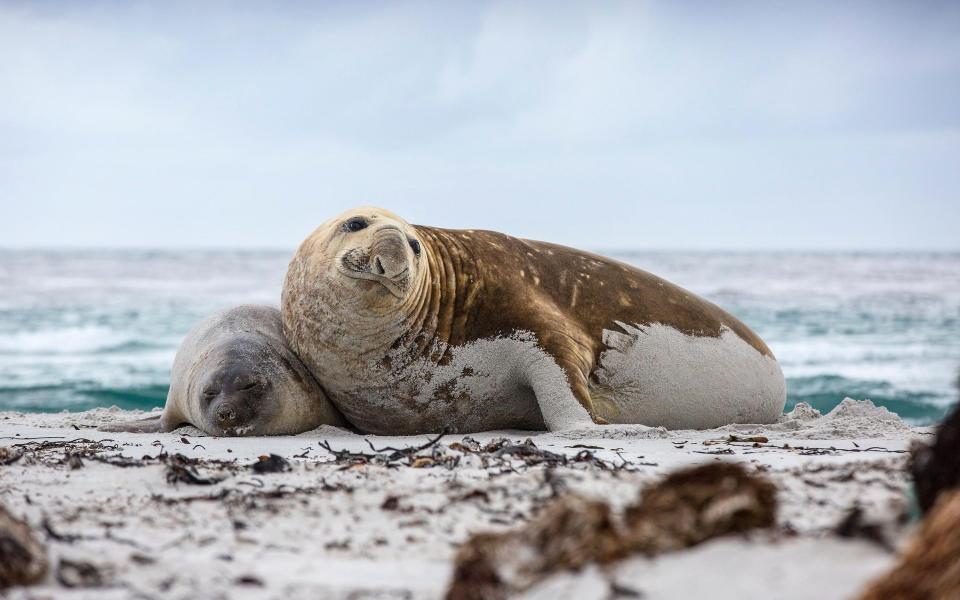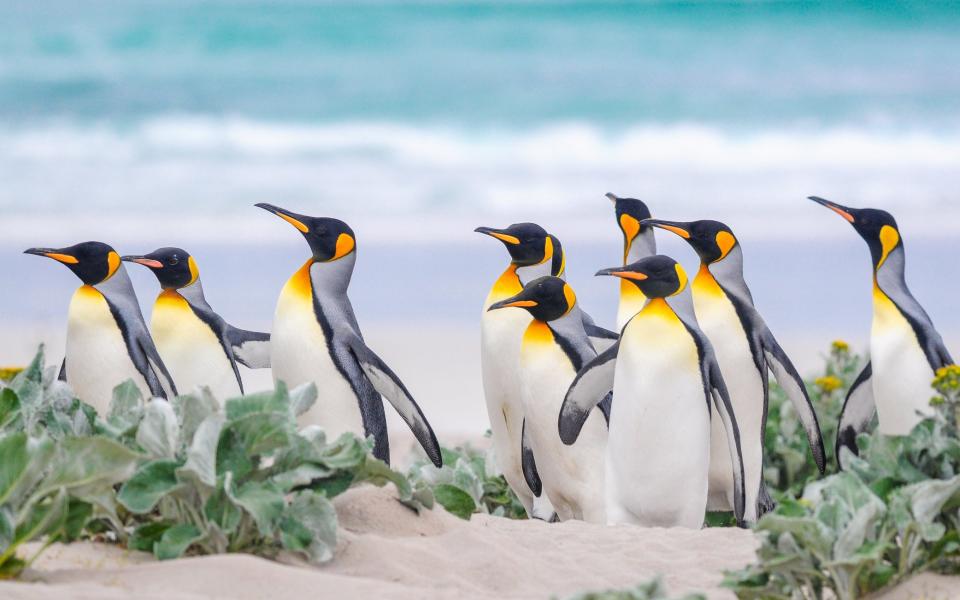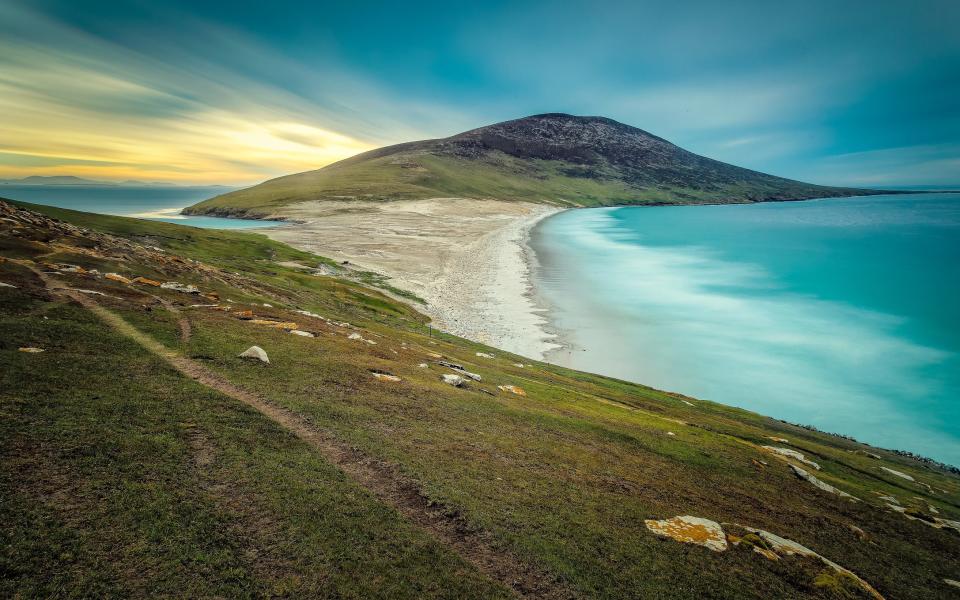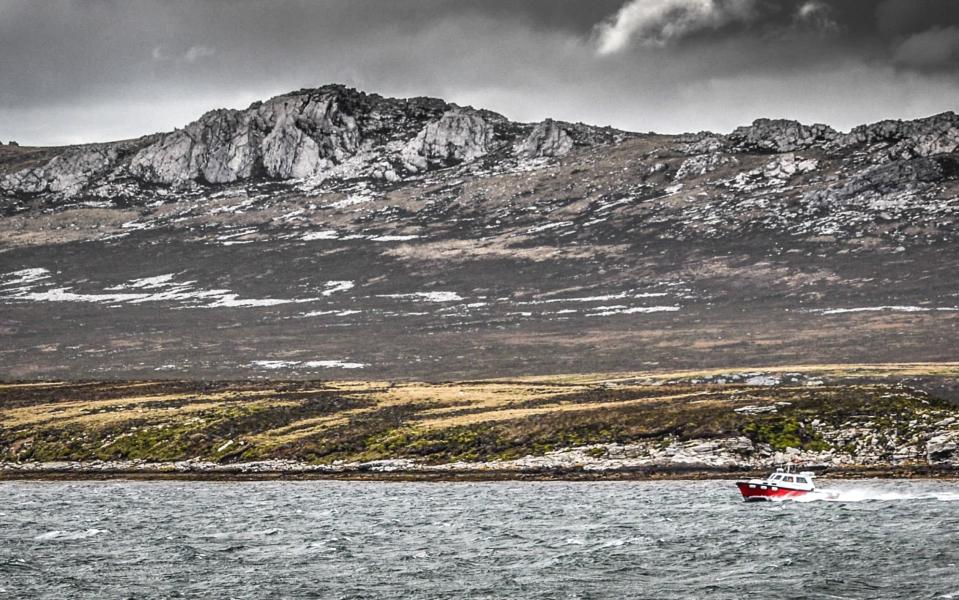Residents of the tiny Falkland Islands offered £500 to take a staycation

In August 2020, the British Government offered citizens up to £10 off meals in restaurants via the ‘Eat Out To Help Out’ scheme.
Nearly 8,000 miles from the UK, the British Overseas Territory of the Falkland Islands is offering its residents an even bigger incentive: £500 to go on holiday. As long as it’s in the Falklands.
The Tourism Recovery Incentive Programme (TRIP), which has been in operation since October 2020 and will continue until at least May 31, was launched to provide much-needed support to the Falklands’ tourism sector.
Pre-pandemic, tourism brought in as many as 80,000 cruise ship visitors a year, with the islands’ population (2,933) often doubling with the arrival of as many as three vessels per day.
For nearly every resident, up until Covid-19 struck, international tourism provided second and third jobs, with many jumping into their 4x4s to take visitors across the islands’ spectacular landscapes, where in the summer the penguin population can reach the one million mark.
Since March 2020, the Falklands has lost all international tourism. While flights to Great Britain run by the Ministry of Defence continue to operate, weekly flights to South America have been cancelled since March 2020, with no review of their reopening due until March 2021. The return of the cruise ships remains highly unlikely this year.
Located 300 miles east of the Chilean coast, and just 750 miles from the northern tip of Antarctica, the Falklands are isolated from both tourism and the present lockdown conditions of the UK. Pubs and restaurants remain open, with no social distancing, no mask wearing and handshakes an everyday occurrence.

“For us, along with the Falkland Islands Government, our aim was finding a way for the tourism industry to survive”, explained Steph Middleton, Executive Director of the Falkland Islands Tourist Board, discussing the advent of the TRIP scheme. Banding together, the Falkland Islands Government and stakeholders across the tourism sector conceived TRIP, which offers all eligible adults a digital voucher worth £500, or £250 for those aged under 16.
80% of the voucher covers the cost of accommodation in the Falklands, whilst the remaining 20% can be used in cafes, restaurants and gift shops.
Marcus Morrison, a construction project manager, used the scheme alongside his son and daughter to visit Pebble Island, home to the Falklands largest beach and the site of a famed SAS raid during the 1982 Falklands War.
“It was absolutely amazing – you often forget about what you’ve got around you and always think about getting off the islands,” Morrisonsaid. “For me it has opened my mind about the islands and what we have to offer.”

In terms of promotion, the scheme has had huge uptake: out of the 2,933 Falklanders, over 2,300 have registered, some 75% . For non-permanent residents, the military personnel based at RAF Mount Pleasant, the Government is also providing £100 per person that can be used for tourism.
Mark Pollard, member of the Falklands Legislative Assembly and one of the leads for the TRIP scheme’s development, said: “One of the big things for me is that the poorer families in the Falklands are getting to see parts of the islands that they would never get to see.”
Beyond finance, many locations, such as Sea Lion Island, are often booked up as many as two years in advance.
The island, a 45-minute flight away from the capital Stanley, is beloved for its wildlife, where visitors will often rise at 3am to witness orcas hunting elephant seals. Describing the spectacle, the island’s co-owner Sarah Crofts said: “It is like a David Attenborough film.”

The costs of getting around the islands can be high: the journey from Stanley to Sea Lion Island is £138 return using the local air service. This cost is reduced by 50%, however, for those using the TRIP scheme.
Karen Armstrong, a primary school teacher with two teenage children, noted that outside of the pandemic it can often be cheaper to fly to Chile for a week than book a domestic holiday.
Alongside her daughter, she recently visited Sea Lion Island through TRIP. Reflecting on the experience she said it was “something we wouldn’t have been able to do without the scheme”.
The appeal of exploring the islands, even to those whose family have been on it for eight generations or more, is clear. Alex Olmedo, a hotelier and restaurateur from Chile who has lived in the Falklands for 30 years, put it simply when describing the appeal of the islands’ wildlife: “We live in a zoo”.
The five best things to do as a tourist in the Falklands
Visit the newly opened Yorke Bay: Up until November last year this gorgeous stretch of beach had been out of reach for Falkland Islanders. Covered with landmines laid during the 1982 war, for the first time hundreds of Falklanders have been able to explore this part of East Falkland that had been a no-go zone for nearly 40 years.
See the penguins at Volunteer Point: Home to 1,500 breeding pairs of king penguins, Volunteer Point on East Falkland is the place to go and live out childhood dreams of seeing Antarctica’s most beloved birds.
Stop for a bite/drink at The Waterfront Hotel: The Falklands only boutique hotel, The Waterfront is the perfect place to stop for a break after a busy day out exploring the islands. Go for the afternoon tea, stay on for the local Falklands lamb.
Visit Carcass Island: Upon landing on Carcass Island’s grass airstrip, you are likely to be met by elephant seals. Look out for tiny Cobb’s wrens, who make for picture perfect snaps if you can catch them before they fly away.
Visit Sea Lion Island and Lodge: A must-visit, nearly always booked up one or two years in advance. Home to orcas, gentoo penguins and more. Owners Micky Reeves and Sarah Crofts are wildlife experts who can tell you all you need to know about the island’s myriad residents.

